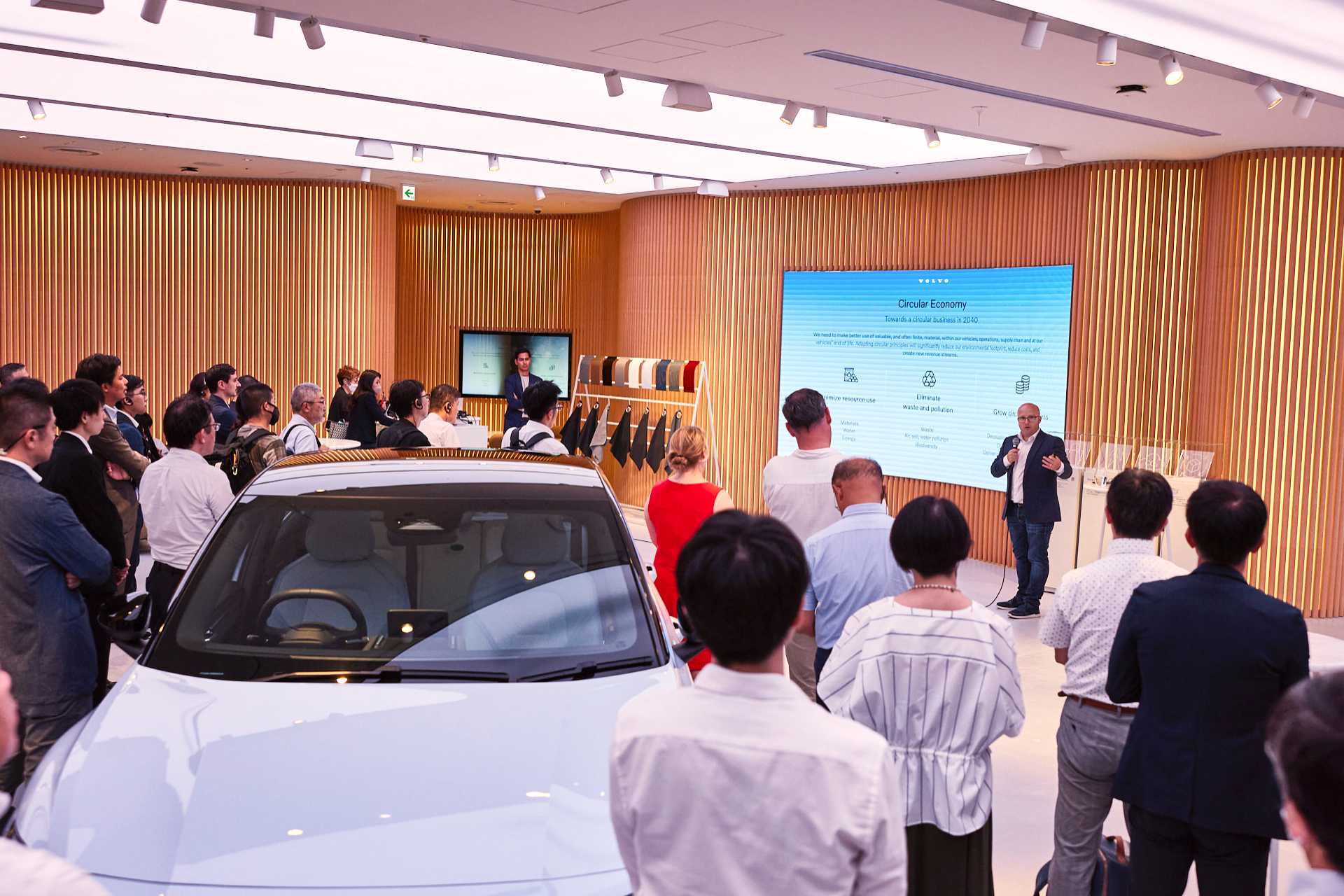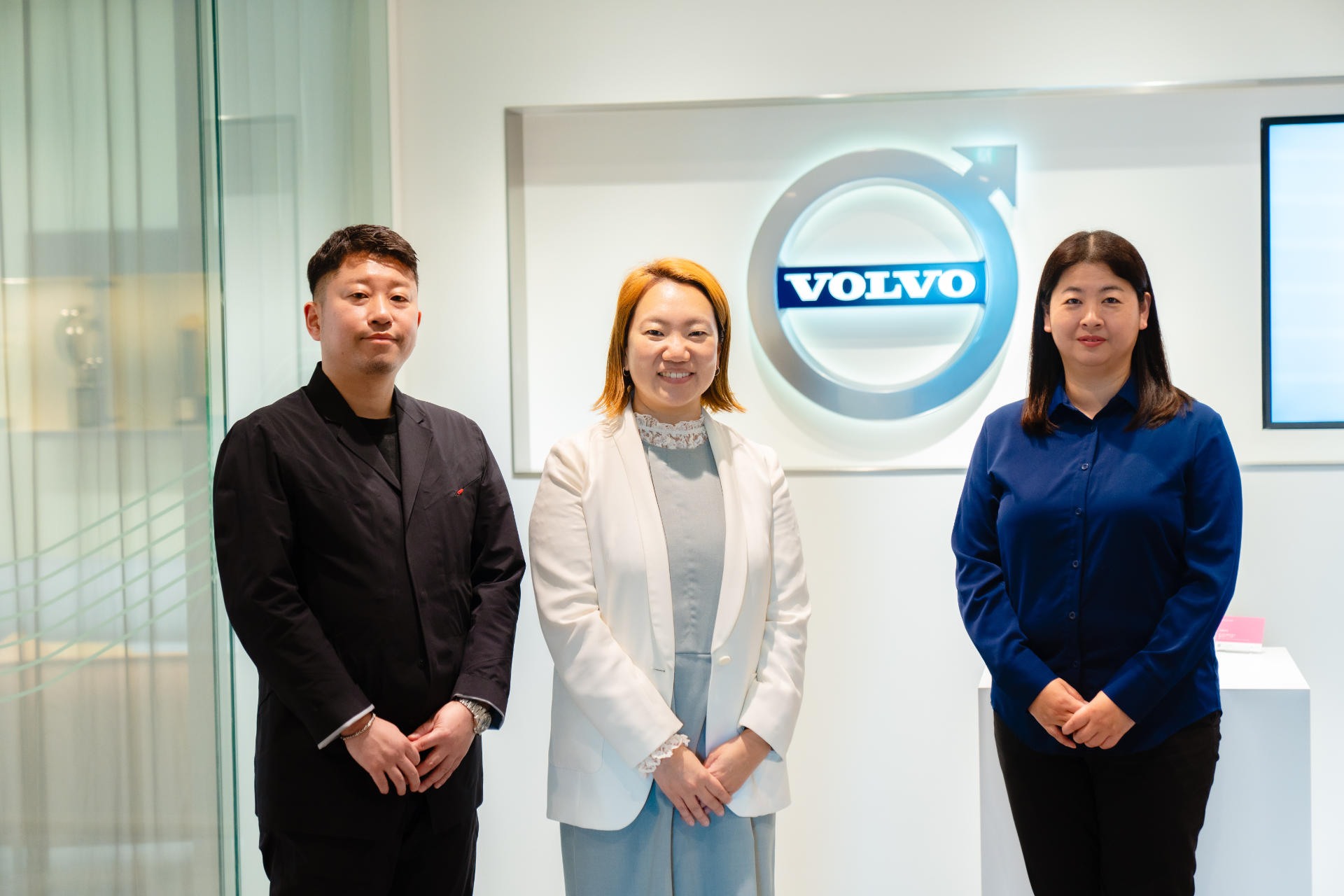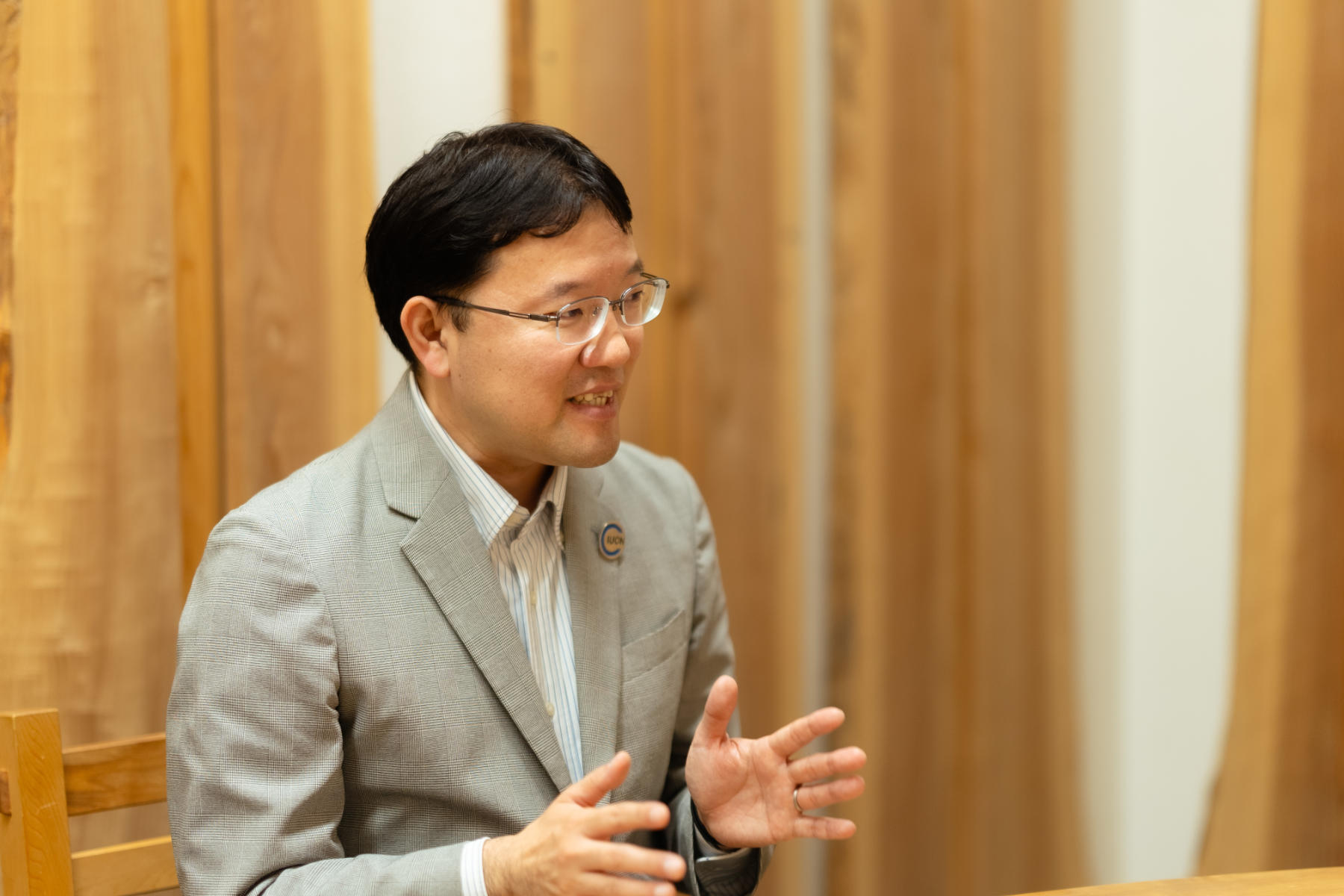CASE 38
Volvo Car Corporation
(Sep 1, 2021 – Mar 31, 2024)
With peace of mind, we entrusted you with the production of a sustainability-themed website.
Volvo, a car manufacturer based in Sweden, works hard to ensure the safety of people both in and around its vehicles. As part of that commitment, the company has long led the industry in the pursuit of sustainability. Volvo asked Hitoshizuku to support the management and production of its "Sustainable for Life" website. Its goal is to promote the company's values, but also to connect people working on sustainability, and to encourage changes in behavior that benefit society. We asked about the impact of the website, and about future goals.
Media that changes values and behavior regarding sustainability

Miyuki Kitagawa, Volvo Car Corporation
Asami Yamamoto, Hitoshizuku (Yamamoto):
The “Sustainable for Life” website introduces your sustainability-related initiatives and values to people in and outside of the company. We teamed up with an advertising agency called Sponge Creative Inc. (Sponge) to offer support, focused around organizing interviews and writing articles. What prompted you to launch this form of media?
Miyuki Kitagawa, Volvo Car Corporation (Kitagawa):
Safety has been one of Volvo’s core principles since its founding, and we’ve long adhered to the idea that protecting people requires minimizing the burden on the global environment. We came to the conclusion that the most accurate way to communicate those values was to announce them ourselves.
Yamamoto:
What challenges did you face while doing that?
Kitagawa:
Recently, the conversation around sustainability and the sustainable development goals (SDGs) has gained a lot of momentum. Lots of people are wearing SDGs badges. There’s a sense of excitement. However, in Japan, there still aren’t many people actively working towards sustainability within daily life. I think that a change in behavior comes from a change in values. We wanted to create media that would approach sustainability issues from many angles, influencing the outlook of its readers.
Yamamoto:
Content production took us all over Japan. I spoke to people dedicated to sustainability, which taught me a lot, and broadened my perspective. I had fun, and I was grateful to be given that role.
Kitagawa:
Sustainability incorporates a broad range of themes, such as conservation, recycling, ethical consumption, and gender equality. I’m still learning too.
With peace of mind, we entrusted you with everything from interviewee selection to article writing.

Asami Yamamoto, Hitoshizuku
Yamamoto:
Two years have passed since the media campaign began, and nearly 70 articles have been uploaded. What have the reactions been like, internally and externally?
Kitagawa:
Internally, it was effective in changing the mindsets of the staff at Volvo, and at dealerships. We run sustainability training, but there’s a lot to learn, and the content can be quite rigid. This articles on the site often discusses sustainability within daily life; it works together with our training programs to deepen each employee’s understanding.
Yamamoto:
I’m glad! Since 2022, Volvo Japan has employed a sustainability coordinator to intensify internal and external initiatives. Have you seen any changes in the behavior of Volvo and dealership staff?
Kitagawa:
Personally, I feel that their awareness has grown significantly. There are modest efforts to reduce plastic usage; staff bring their own drinks bottles, and we don’t have vending machines at our HQ. Also, when buying lunches for meetings, we avoid overpackaged options. People are more aware of sustainability concerns when making choices in everyday life, which is a great sign.
Yamamoto:
What has the external reaction to the website been like?
Kitagawa:
As the volume of content has grown, Volvo’s values and initiatives have come into sharper focus. The media campaign has become a foundation for other promotional efforts. We’re active on social media, of course. But we’ve also invited interviewees to speak at one of our studios, allowing us to build new relationships with attendees. The interviews conducted by Sponge and Hitoshizuku introduced us to people working on sustainability. They share our values, and I’m very happy that it generated a desire to work together again. I truly trusted them.
Yamamoto:
I’m very pleased to hear it. Most of the interviewees knew about Volvo’s efforts, and were happy to be involved. It would be wonderful to move forward synergistically with people sharing those values. What was your impression of the teamwork between Sponge and ourselves?
Kitagawa:
You efficiently carried out what we asked you to do—everything from organizing interviews to ensuring the quality of the finished articles. We had full peace of mind.
Yamamoto:
Thank you for your kind words. But on the other hand, what aspects of our support could have been improved?
Kitagawa:
I’ve thought about this, and nothing much comes to mind. But perhaps if we’d discussed a communication strategy more thoroughly, we could have achieved more. You have a lot of experience supporting individuals and groups working to address social issues, so it would have been good to take advantage of that knowledge. It would be great if there’s an opportunity to do that in the future.

Volvo organized a well-attended series of sustainability-themed events at one of its studios.
By implementing communication methods like this website, we want to continue moving towards sustainability.
Yamamoto:
Finally, can you tell us what Volvo hopes to work on in the future?
Kitagawa:
I hope that promoting our brand message will persuade people to choose Volvo’s products, and society will move in a positive direction. We recently launched the EX30. It maximizes the use of recycled materials and minimizes CO2 emissions, making it the most sustainable electric vehicle in our lineup. It embodies our values of safety and sustainability. We have to promote our values and highlight sustainable options, both to people that know about Volvo already, and people of younger generations, who may not know as much about us.
Yamamoto:
There are generations that grew up hearing about sustainability, and they tend to watch companies’ efforts carefully. I think that Volvo’s achievements, built up over many years, are well regarded. If we can communicate that, I believe that society will head in a better direction.
Kitagawa:
Absolutely. Volvo’s position on sustainability hasn’t changed since the company was founded. By 2030, we want all the new cars we sell to be electric, and by 2040, we want to be a climate-neutral company. These are big goals, but we’re progressing towards them. And I hope to promote that journey in various ways. One is via self-produced websites like this. Another is via events. Other methods are available, but we’re still investigating them. This particular campaign came to end due to various unfortunate circumstances, but we’re not going to stop working on sustainability. I hope we can explore new communication methods together.
Yamamoto:
That sounds wonderful. I look forward to it!

Left: Saito, Sponge Creative Inc.
Center: Yamamoto, Hitoshizuku
Right: Kitagawa, Volvo Car Corporation
Photography: Hiroyuki Horigome
Editing: Mayuki Tsujihara
Translation Editing: Satomi Furukawa
RECENT WORKS
| Name | Hitoshizuku Inc. |
| Address | 33 Nihonodori Naka-ku Yokohama Kanagawa 231-0021 JAPAN |
| Branch | Hamacho Odawara Kanagawa 250-0004 JAPAN |
| Phone | 81 045 900 8611 |
| info@hitoshizuku.co.jp |
| President | Hiroshi Kokubo |
| Established | March 2016 |
| Capital | 3,000,000yen |
| Business | Advertising & Public Relations Agency Planning & Produciton of Social Good Projects |
| Lawyer | Junna Tei / Yokohama First Law Office |
| Tax Advisor | Satoru Motokoide / Uniques Money Advisory |
| Labor and Social Security Attorney Office Work Innovation | |





